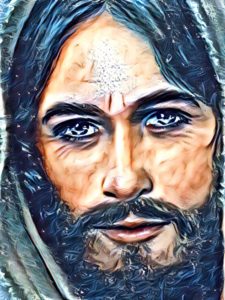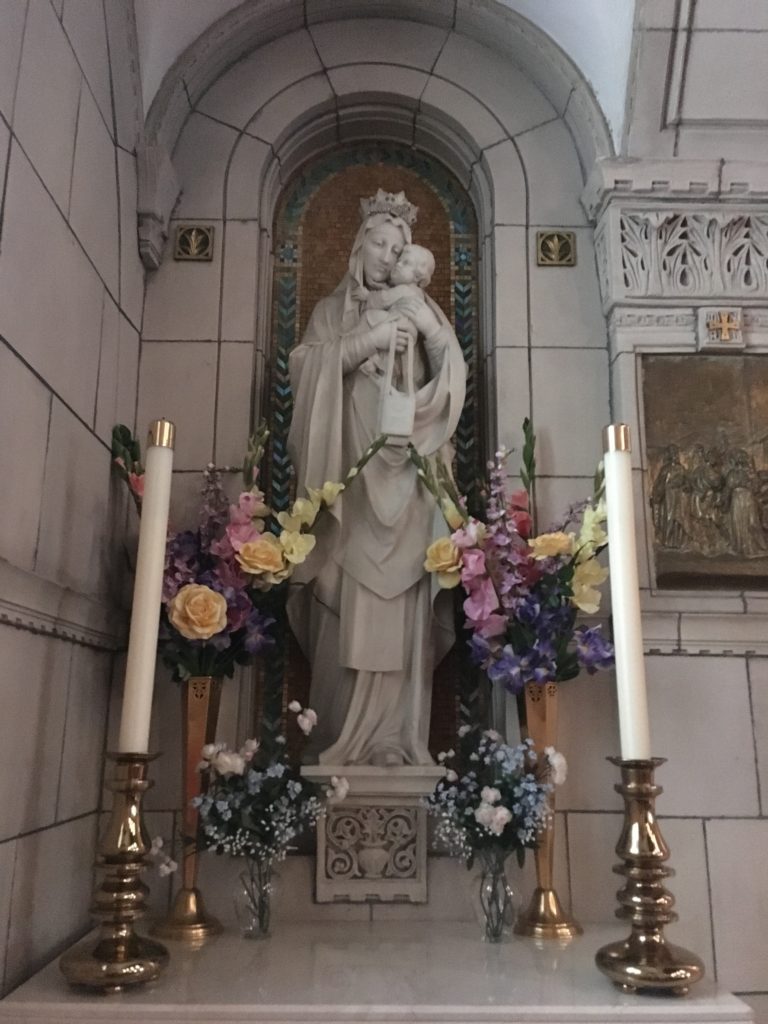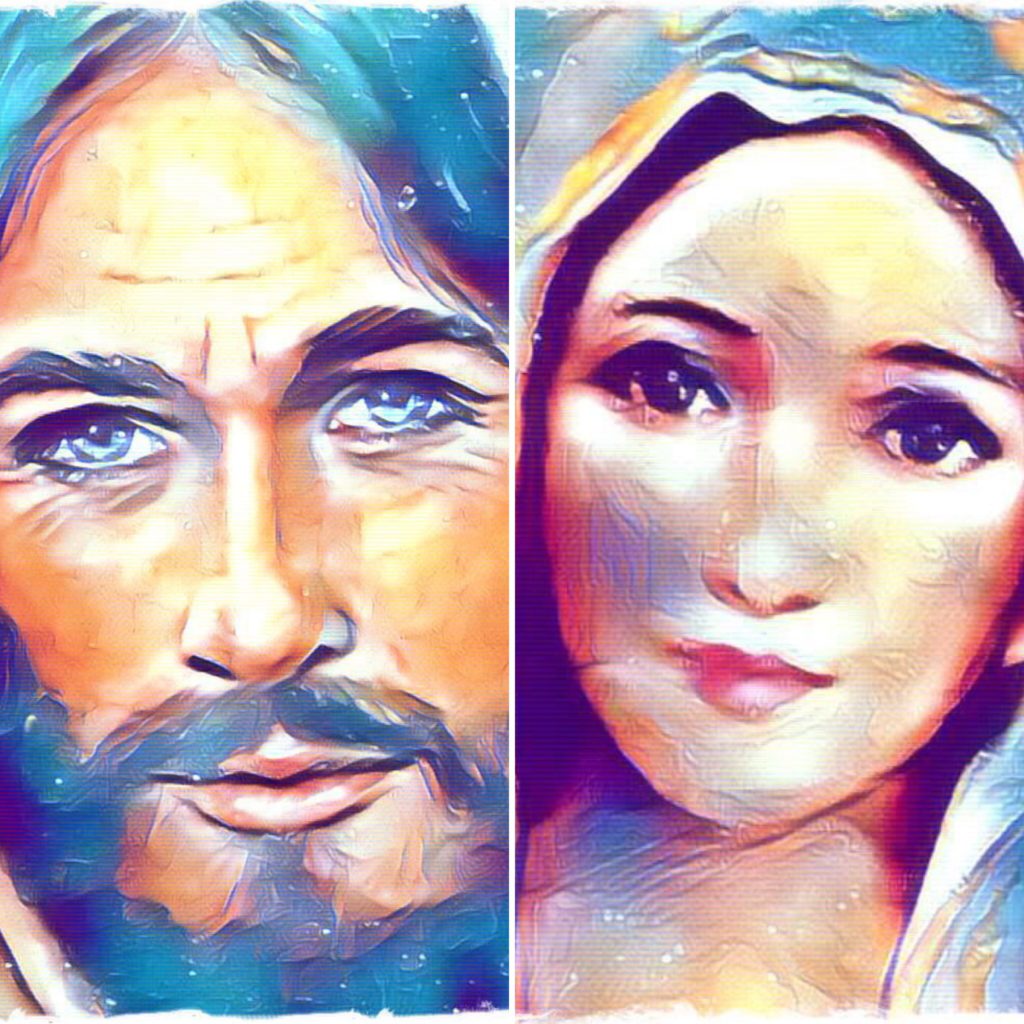
Matthew 11:25-29 – 25 At that time Jesus said in reply, “I give praise to you, Father, Lord of heaven and earth, for although you have hidden these things from the wise and the learned you have revealed them to the childlike. 26Yes, Father, such has been your gracious will. 27All things have been handed over to me by my Father. No one knows the Son except the Father, and no one knows the Father except the Son and anyone to whom the Son wishes to reveal him.”
We are called to come to rediscover the face of God. The true God revealed in Christ as a lover, our savior is essentially that – a warrior who is a lover, a lover who desires to bring about a beautiful revolution in our lives. We are called to come to rediscover the revelation of our wondrous God of Love who is looking for space in our hearts. He is looking for a place to pitch his tent in our souls, to be made flesh again in our lives.
This wondrous God calls us to be open to new growth and no one is exempt from this invitation to love. No one is excluded. No one is written of. No one is counted as not good enough. No one is counted as incapable of receiving what God wants to give. All are invited to this banquet of love because that’s who God is, and also, because that’s who we are. We are made in His image and likeness, which means we are made in the image and likeness of love; we re made for love, and it’s love that satisfies our hearts in this life, and it’s love alone that will last forever in the next.
This invitation, this call to love is ever ancient and ever new. It never gets old. It’s forever vital, and it’s what gives us vitality, not the call itself, but Him who calls. This is especially relevant to people who feel unable to change, to people who may feel stuck, who despite their best efforts, don’t see any difference.
In this talk, “Immaculate Communion: the light of Carmel, divine life in Christ,” I am going to communicate what that means gradually. My primary sources in expressing the gospel through this theme is sacred scripture and experience, first and foremost, and secondly, Saint John of the Cross’s Living Flame of Love, especially as it is captured by Ian Matthew in the Impact of God. I will be spring boarding and drawing from this text as a primary source, and seasoning with my own words. In the background, of course will be the Catechism of the Catholic Church because all the mystical theology, the grandeur of God’s love and how we’re called to experience that in Jesus Christ in a personal life-changing way, is all contained in the Catechism.
The Catechism is the sacred doctrine behind the liberating truths of God’s grace through the gospel of who Christ is, manifested in so many ways. In addition to the Catechism, to make it more fresh, and to give it that pulse of the Spirit, which I find so prominent in Pope Francis, I will be drawing from the first part of the Joy of Gospel.
We seek God because in some sense, we’ve already been sought out by Him. We’ve already been found by Him, and that’s why we have the thirst to look for Him, and to drive the extra mile to find Him. When the Lord says, ‘Seek and you will find,’ the word seek isn’t meant to be a wimpy expression. It’s not just, ‘Give it a shot. Try it out. If it doesn’t work, then let it go.’ Seek means hunt it down. Really go after it, and don’t let anything get in your way in finding it because it belongs to you. You have a birthright to have it. To get it, to find it, sometimes, you really have to fight for it. Sometimes, you have to be willing to take a beating to get it, but you will get it if you look for it with all your heart.
But what we’re looking for is not an it or a something, it’s Somebody. It’s not simply a treasure, or far less, a reward for the good that I do. The only reward that we’re after is Him. That’s it. He’s our only reward. He’s our only merit. He’s everything. He is our hope. Our trust is not in our work, it’s in His work. Our faith is not in my love for God, but God’s love for me. It’s that focus of faith that transforms, when the focus is on Him, and not on myself, on the relationship that He offers and not on the religion that I practice.
The two aren’t mutually exclusive; the relationship isn’t at odds with the religion. But the structure, the rubrics, the institutions behind the religion, and all the customs, and the doctrines, are all at the service of this transforming union. Every aspect of the Church that Jesus Christ established and founded on the rock of Saint Peter’s confession of faith comes through the seven sacraments. The Church continues from generation to generation, in a very specific way, in a manifold manner of grace and truth.
The grace that comes thorough the sacraments, through the infallible Word of God, the infallible interpreter of the Word, the pillar and bulwark of the Church – this whole encompassing universal reality of love that Christ established in His is one, holy, Catholic, and apostolic Church, are all at the service of the transforming union of love, the enrichment of what Jesus means when He said, ‘I came that you might have life, and ever more abundantly.’
This is a call to freedom, to full-fledged freedom! To be fully human, fully alive, set free; to be the perfect fulfillment of your dreams, to get the most out of life possible. This is what Jesus came to offer. This is what Jesus came to provide by the sacrifice of His life in exchange for ours. The primary thing He needs to bring about this agreement, this covenant, this contract, this exchange, the primary requirement is faith. And faith isn’t always easy. Faith isn’t always easy. Our faith will be purified on so many levels, so many times, in so many ways that we never expected when we first said yes! And it’s when we say yes, even when it’s so hard to do so- that’s the faith that transforms. That’s the faith that allows God to perform miracles (to be continued).
SOURCE: Danville Retreat, 2014. Copyright 2017, Fr. Robert Barcelos. All Rights Reserved




